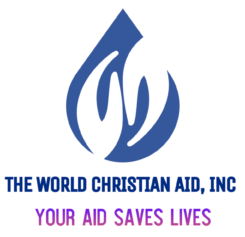Clothing: New or gently used clothing suitable for the climate, including underwear, socks, and shoes.
Food: Non-perishable food items especially those that are easy to prepare, and culturally appropriate options.
Blankets and Sleeping Bags: Especially important for cold climates or those who may be living in temporary shelters.
Water and First Aid: Bottled water water purification tablets basic first-aid kit
Kitchen Utensils:
Dishes and Glasses: For serving food and drinks.
Cleaning Supplies: Soap, Detergents and other household cleaning products.
Towels and Bath Mats: For personal hygiene and sanitation.
Bedding:
Other Important Items:
Gift Cards: To stores where household essentials, groceries, and clothing may be purchased.
Language Learning Resources: Books, apps, or other materials to help refugees learn English or other local languages.
Information and Resources: Information about local services, legal aid, and other support programs.
For disaster relief, focus on essentials:
Basic Needs:
Water: At least one gallon per person per day, for drinking and sanitation.
Food: A several-day supply of non-perishable, easy-to-prepare food.
First Aid Kit:
Dust Mask: To help filter the air.
Local Maps: To navigate if roads are impassable.
Manual Can Opener: If your kit includes canned food.
Paper and Pen/Pencil: For taking notes or playing games.
Important Documents: Keep copies of identification, insurance information, and other important documents.
Baby Supplies:
Formula
Diapers
and other baby essentials if needed.
The need to urgently address medical concerns can occur anytime. Please review WCA list and help us with any items
Basic supplies
Emergency phone numbers, including contact information for your family healthcare team and pediatrician, local emergency services, emergency road service providers, and the poison help line. There are two ways to get help from Poison Control in the U.S: online at www.poison.org or by calling 1-800-222-1222. Both options are free, confidential, and available 24 hours a day.
